Sometimes, Pope Francis seems to like being misunderstood. Often, we—the media, the audience, and even many fellow Catholics—seem to love misunderstanding him.
In a recent interview with 60 Minutes, CBS News’ Norah O’Donnell questioned Francis on everything from global migration, to Israel and Gaza, to the church’s stance on surrogacy and blessings of gay couples. It was a wide-ranging conversation that nevertheless suffered from a frequent shortcoming of most mainstream outlets: understanding Catholicism primarily through contemporary politics. It’s not unreasonable that a secular media organization would eschew theological inquiry to instead get the pope’s take on the news of the day, but it’s impossible to overlook how this tendency misrepresents the church as being more worried about The Discourse™ than saving souls.
Salvation theology did, however, come up inadvertently. Here, Francis’ imprecision with language—he’s no Benedict XVI—raised eyebrows. “We are all fundamentally good,” he purportedly said in a voiceover translation. (His original answer was in Spanish.) “Yes, there are some rogues and sinners, but the heart itself is good.”
One might be tempted—indeed, many were—to conclude the pope was flat-out contradicting the scriptural account of sin and salvation. Didn’t the prophet Jeremiah warn, “More tortuous than anything is the human heart, beyond remedy”? Didn’t the apostle Paul remind Jew and Greek alike that “all have sinned and are deprived of the glory of God”? Some even quipped: Is the pope Catholic?
Yes, yes, and yes. The problem, though, was that Francis didn’t say what 60 Minutes claimed he said.
A poor English translation and an incorrect Spanish transcript—the first has since been corrected by X, but the latter is still unchanged by CBS News—contributed to the confusion. As I heard it, Francis actually said something closer to this:
O’Donnell: When you look at the world, what gives you hope?
Francis: Everything. One sees tragedy, but one also sees so many beautiful things. One sees heroic mothers, heroic men. Men who have wonder, women who look forward. That gives me much hope. People want to live. People want to forge ahead. And people are fundamentally good. We are all fundamentally good. Every now and then we’re a bit roguish, sinners, but the heart is good.
It’s not that most of us are A-OK while “some” hooligans and reprobates roam east of Eden. Do we all sin? Certainly. Does sin erase our fundamental goodness? No, Francis claims.
Of course, at the risk of drastically oversimplifying things, interpretations differ. A God-fearing Calvinist might retort that even entertaining the possibility that people are “fundamentally good” misconstrues the total depravity of our present condition. Even a faithful Catholic might wonder whether His Holiness was far too sanguine. If we’re all fundamentally good, what’s the point of worrying about sin? If we just sin “every now and then,” why even bother with Christ?
It might be helpful, though, to recall one of Francis’ first interviews upon becoming pope. When asked, “Who is Jorge Mario Bergoglio?” Francis replied:
I am a sinner. This is the most accurate definition. It is not a figure of speech, a literary genre. I am a sinner. … I am one who is looked upon by the Lord. I always felt my motto, Miserando atque Eligendo [By Having Mercy and by Choosing Him], was very true for me.
Christians of all denominations are right to stress the reality of sin—whether referring to actions or a state of being—and the perennial human need for Christ’s mercy and salvation. Francis certainly does. So perhaps it’s more productive to understand his “fundamentally good” comment as being less about the intricacies of hamartiology and more about offering a model for how we should regard fellow human beings. Should we focus on our shared and irrevocable breach of trust that resulted from the fall, and our unequivocal dependence on God’s rescue? Or should we, though fully aware of our sinfulness and need of mercy, be struck by the irrevocable imago dei reflected in each and every person, by a fundamental nature created by and for God? Again, interpretations differ—but Francis thinks one option is flat-out correct, imprecision notwithstanding.
Inevitably in the American Catholic church, reactions to the pope’s words point back to the rift between “conservative” or “liberal” Catholics—political shorthand that doesn’t so much illuminate as show how politics creeps into other aspects of our culture. O’Donnell fell for this, asking the pope about his thoughts on “conservative bishops” who are apprehensive of his papacy’s changes. Francis himself added to the confusion. Rather than rejecting the label, he leaned into it, telling O’Donnell:
You used an adjective, “conservative.” That is, conservative is one who clings to something and does not want to see beyond that. It is a suicidal attitude. Because one thing is to take tradition into account, to consider situations from the past, but quite another is to be closed up inside a dogmatic box.
“Conservative” Catholics will reasonably find their genuine striving for orthodoxy and faithfully abiding by tradition as getting an unfair shake from the Holy Father. Not a new story. Some might very well hear echoes of a time when political conservatives were disparaged: Barack Obama’s 2008 claim that conservative voters “cling to guns or religion.” Glibness alienates (and not just conservatives, as the pope was reminded this past week).
Yet it strikes me that Francis unintentionally alluded to one of the 20th century’s most memorable Catholic apologists—one who is frequently cheered by “conservatives” in the American church.
In his seminal book Orthodoxy, G.K. Chesterton remarked that:
All conservatism is based upon the idea that if you leave things alone you leave them as they are. But you do not. If you leave a thing alone you leave it to a torrent of change. If you leave a white post alone it will soon be a black post. If you particularly want it to be white you must be always painting it again; that is, you must be always having a revolution.
Liberal Catholics often ignore the fact that the church can’t simply be molded to suit the present. But conservative Catholics often make a corollary mistake: They ignore the fact that the inevitability of change calls for creatively conveying eternal truths in novel ways, which require some change precisely to make tradition intelligible and resonant to the people encountering it today. As St. John Henry Newman wrote, “To live is to change, and to be perfect is to have changed often.”
How, then, do you make tradition intelligible and resonant to a culture increasingly detached from religion in general and Catholicism in particular? Here, a dramatically under-discussed moment in the 60 Minutes interview shows how Francis wagers an answer.
After he outlined why he opposes surrogacy—the way it commercializes the creation of life, the way it overshadows adoption—O’Donnell remarked that “sometimes, for some women, it is the only hope.” Francis, in essence, replied that people should think carefully and prayerfully about the situation—precisely the sort of response that his detractors paint as platitudinal and his supporters cast as pastorally wise. But it’s how he concluded his response that’s striking (emphasis added):
But you are right. I want to tell you that I really liked your expression when you told me, “In some cases it is the only chance.” It shows that you feel these things very deeply. Thank you.
The church’s doctrinal infighting will not go away. Sin will certainly not go away. Not in this life anyway. But just as one can reasonably hope that God’s infinite mercy can save even the most roguish of sinners, one can reasonably hope Francis’ model can change how we approach each other. How? Not by insisting on settling disputes and doubts in a given moment, and not by conveying the faith as an argument or abstraction. Rather, by gratefully recognizing in each other a shared striving, a messy endeavor taken up by people with good intentions and sinful inclinations who, amid our compromised corporeal existence, earnestly try to do good and care for their fellow man.
Amid misunderstandings and differing interpretations, it seems clear that Pope Francis is grateful for that—and wants us to be grateful, too.
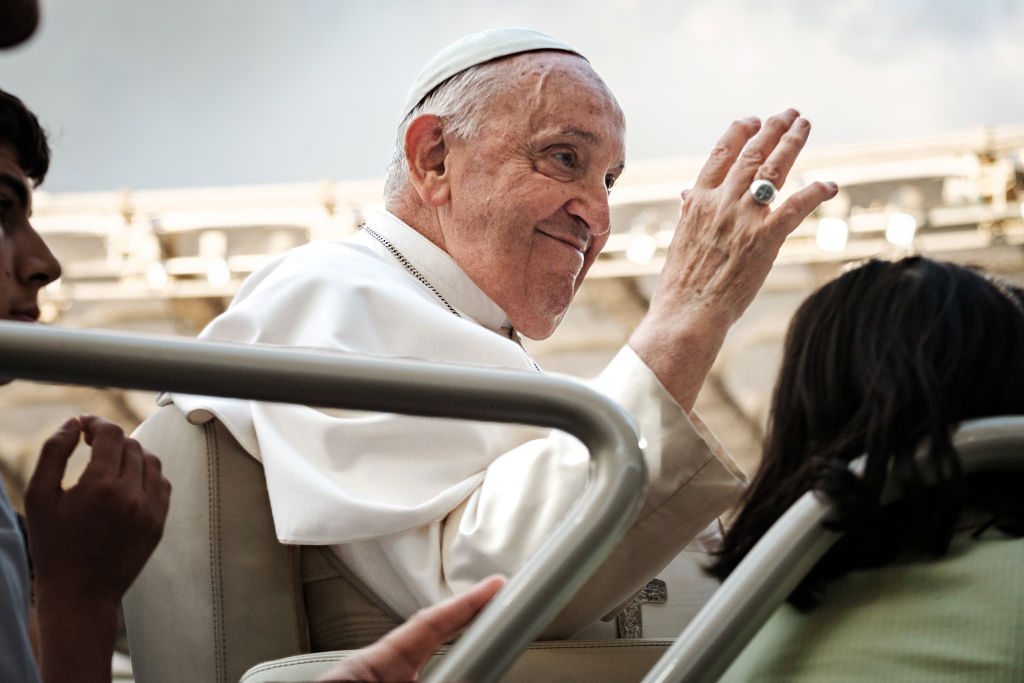

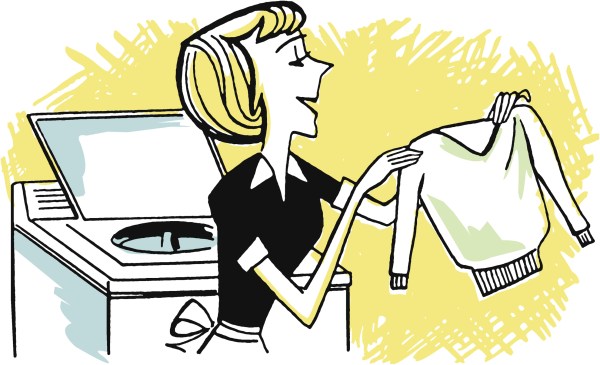
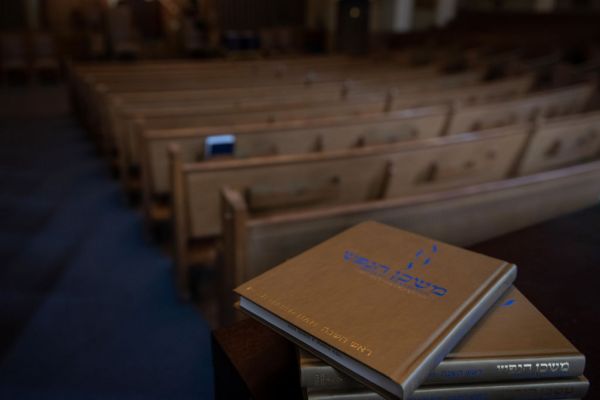
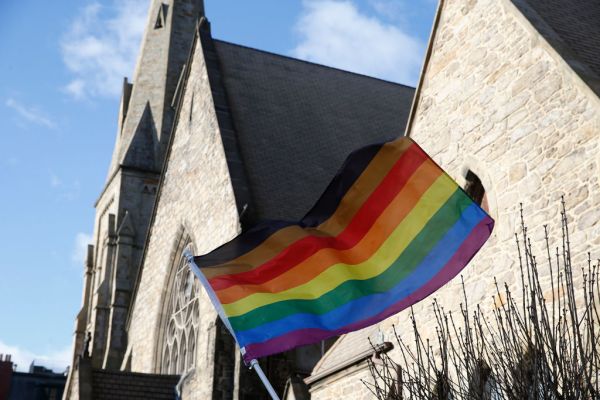

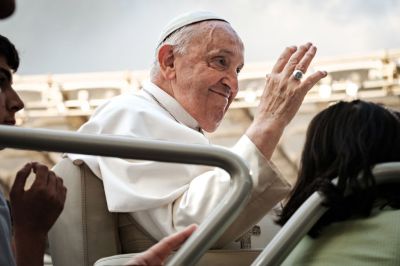
Please note that we at The Dispatch hold ourselves, our work, and our commenters to a higher standard than other places on the internet. We welcome comments that foster genuine debate or discussion—including comments critical of us or our work—but responses that include ad hominem attacks on fellow Dispatch members or are intended to stoke fear and anger may be moderated.
With your membership, you only have the ability to comment on The Morning Dispatch articles. Consider upgrading to join the conversation everywhere.